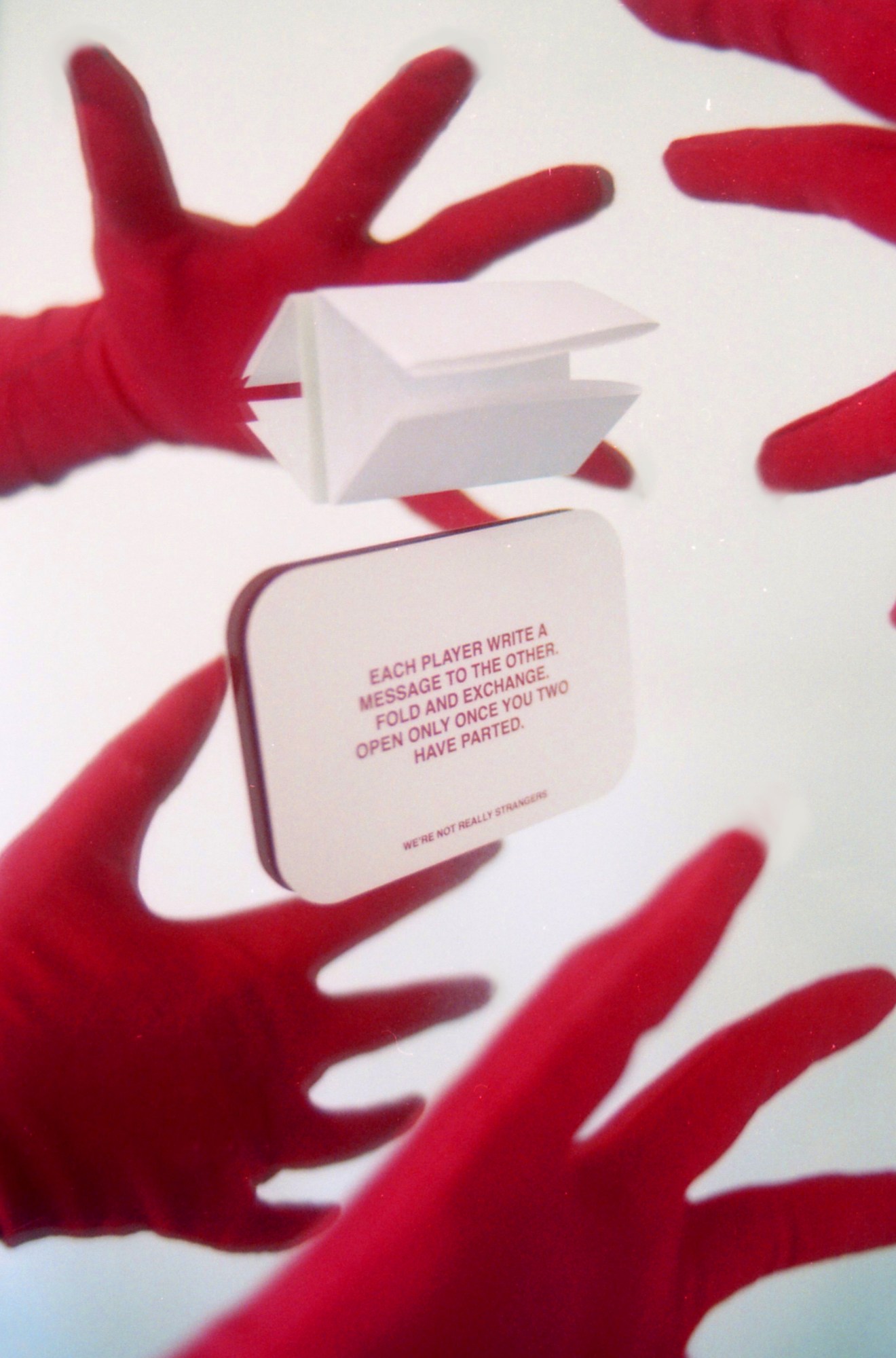We have a tendency, as people, to hold a lot of ourselves back. To see ourselves as flat surfaces, undeserving (or incapable) of being properly explored or unpacked by our peers. Not only is that, in every case, untrue, it also puts up a barrier when it comes to social situations: why would someone ask questions if there’s nothing to learn?
But we are all, beneath the understanding, hugely complex, and the number of things we can learn about ourselves by the questions others ask us is insurmountable. Enter We’re Not Really Strangers, a card game designed to help us break the ice beyond surface level, and get to know our peers and ourselves a little better through the power of communication.
The game is simple: pick up a card and recite the words that are printed upon it. Some are simple, like “Do I seem like a coffee or a tea person?”. Others dig deeper: “What about me is hardest for you to understand?”; “What lesson took you the longest to unlearn?”.
We forget, stuck behind our phones, that conversation can still unveil a number of enlightening revelations about ourselves. This is the beauty of We’re Not Really Strangers, a game created by 25-year-old Koreen Odiney that’s developed into an international movement, spawning an Instagram account with 1.8 million followers. In the bio, there’s a disclaimer that reads “Warning: Feelings May Arise”.
During a period in which we’re losing grip on tactility and face-to-face interactions, the power of We’re Not Really Strangers feels even more potent. “We’re so used to being scrolled past that truly being seen for who we are feels like a whole new level of intimacy,” Koreen says.
Having recently launched a free digital expansion pack dedicated to race and privilege, We’re Not Really Strangers could offer a catalyst for those sit-down chats you’re worried to have with people in your life. It is, on the whole, about learning, and Koreen’s ability to transform that into a phenomenon has, in turn, transformed her into a spokesperson for a generation that feels more alert and anxious than ever before. Here, she discusses her journey with the game, the importance of tactility, and the warm stories that have stemmed from the game’s creation.
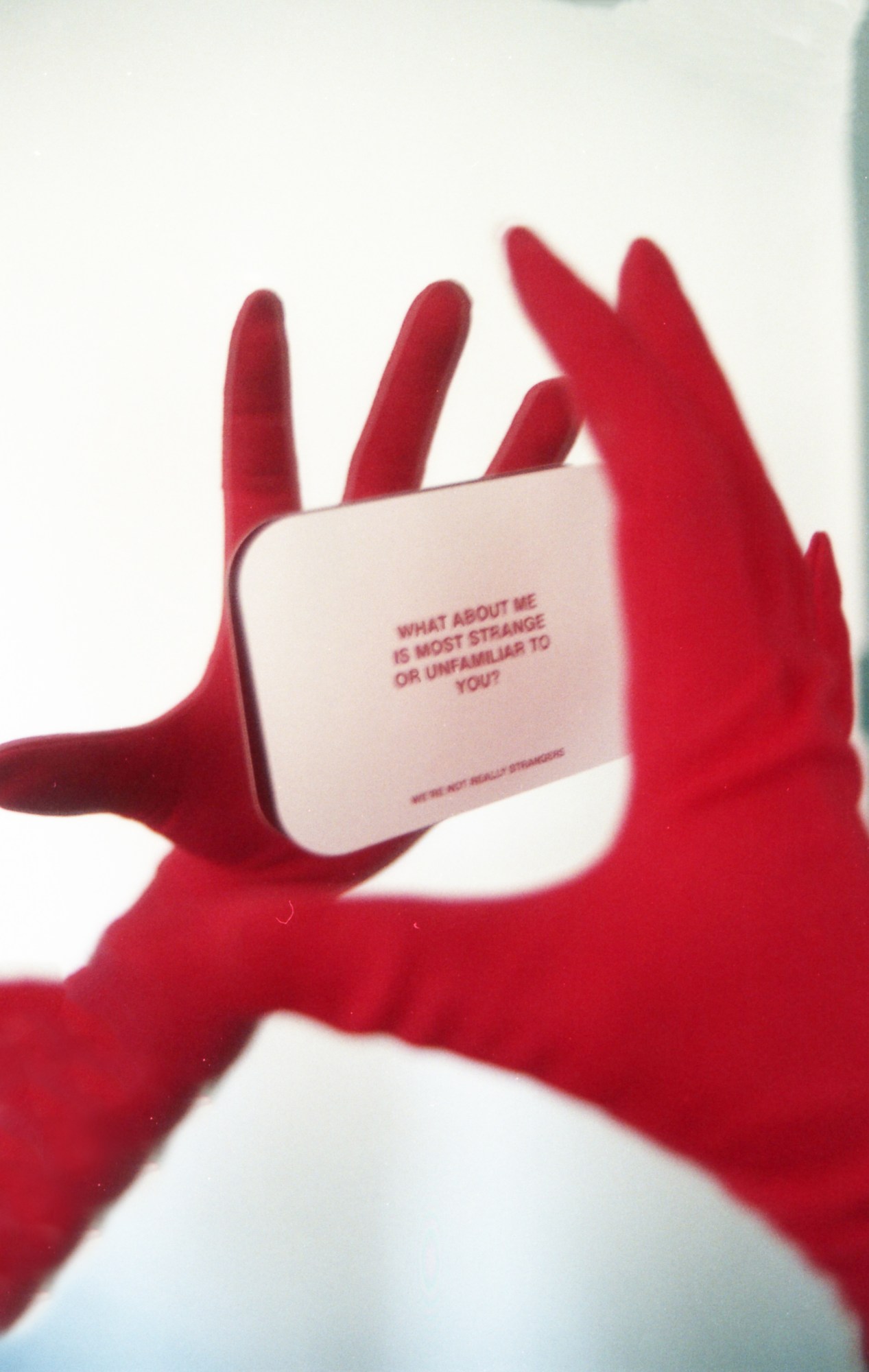
Why did you feel passionate about pursuing We’re Not Really Strangers as a project?
I’ve always been passionate about what makes us similar as people. Around 14, I picked up my first camera and quickly discovered the superpower it gave me. My camera was my passport to people and allowed me to have instant intimacy with the people I came across, even strangers. When I was going through my first heartbreak I’d ask people how they got over their first love. The answers I heard gave me perspective and helped me heal. Questions and connection to this day allow me to feel less alone in what I’m feeling. I became passionate about not only having more interactions like that, but empowering others to do the same.
The game sets out to break down barriers. Why did you initially choose to do this in a format that’s traditional, tactile, and some may say is somewhat forgotten about in the digital age: cards?
It was super important for me to create a tangible product. I wanted something you could hold. Something that would force you to get off your phone, even if for a moment. There’s something about a physical game that reminds me of a time before technology distracted us from one another. There’s also elements of the game that require you to “Draw your current mood” or “Write a handwritten note to your partner”. The physical element of those things feels special to me.
Your new expansion pack tackles race and privilege; a subject people tend to steer clear of. Had you planned this as a new avenue for the game for a while?
I’ve always been interested in ways to make hard conversations more loving and constructive. But recent news made it clear to me and my team that this particular expansion pack was long overdue. The day after the George Floyd story started circulating, our company Zoom meeting was filled with a lot of tears and vulnerability. It began when a team member started the call by expressing her own pain regarding the recent news. That alone opened up the gates to a long, uncomfortable, and very necessary conversation. I had a huge breakthrough when I admitted that I haven’t shown up myself — because I truly didn’t know what to even say or do. But simply admitting to that, I was able to learn that showing up imperfectly is better than not showing up at all.
The core message of what we do as a company is empower meaningful connections. Often those connections aren’t easy. They push us to ask uncomfortable questions and admit places we don’t have all the answers. The lesson the past few weeks has left me with is that, if a conversation is hard, it’s probably the one worth having.
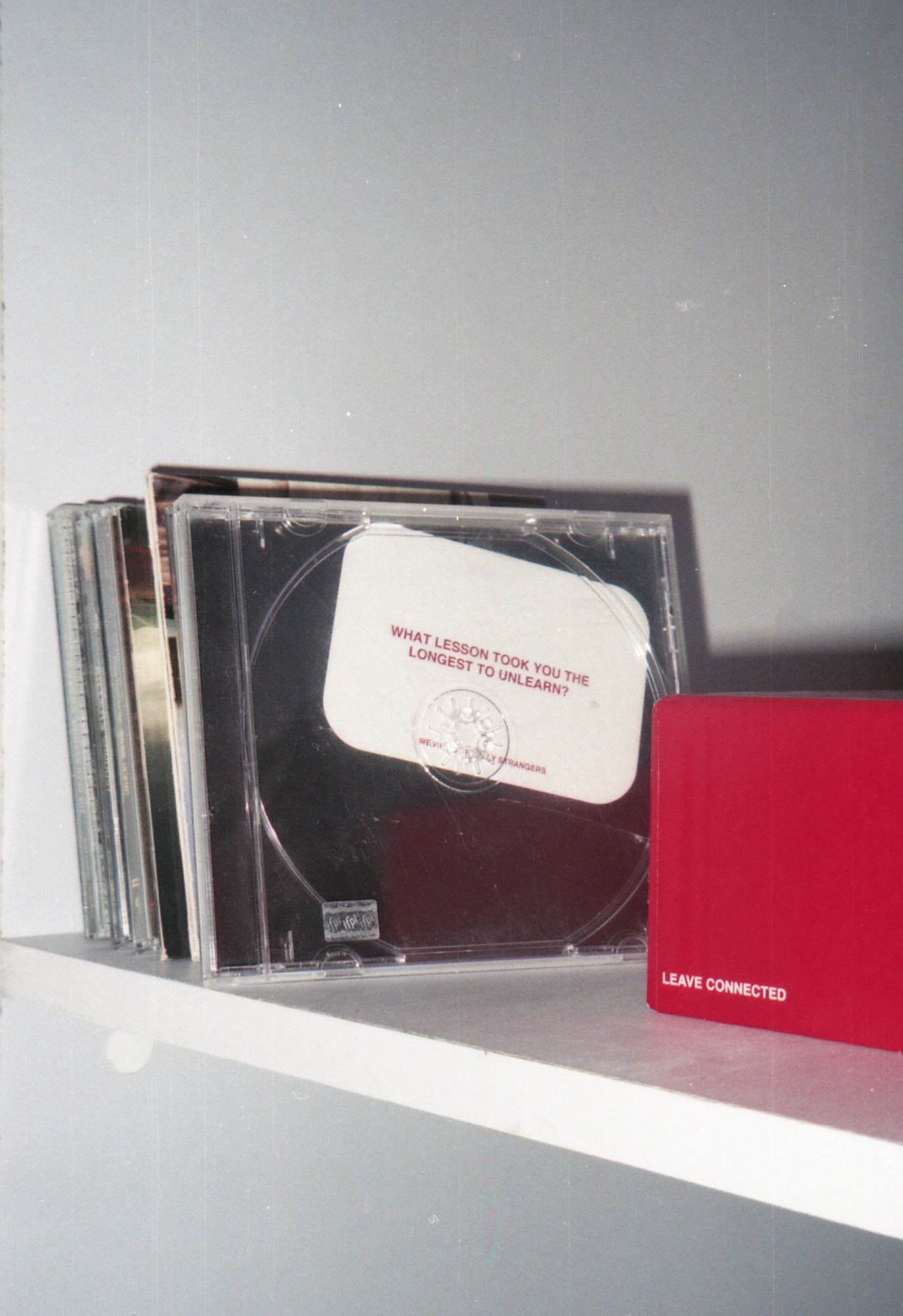
When it came to choosing questions, both for this expansion pack and for the game as a whole, where did you go emotionally to choose what felt right?
I try to think of questions that are most specific to me. If I’m creating a dating pack, I think of the things I’d want to know on a date but have been too afraid to ask in the past. I also love bouncing ideas around on my best friends group chat. I send them ideas, they send me theirs, and together we promise each other to give the most honest and loving feedback. All of my ideas and questions get filtered in that group.
What does stimulating conversation feel like to you?
A stimulating conversation to me feels like a free flow of truth. I appreciate any conversation where I can speak freely without fear of being judged. And for the person I’m speaking with to feel that same level of safety to be themselves. No need to overthink — just be.
Have you heard any stories about We’re Not Really Strangers’ existence in the real world that has warmed or humbled you?
I got a DM just the other day from someone whose significant other wrote “I love you” to them on a WNRS card that asked “What is something I need to hear right now?” That was his first time saying it to her. It was surreal to see because the card in the game that says “Admit something” gave me the push to say “I love you” to my boyfriend for the first time. Another DM I got recently was from a girl in South Africa who hosted a chat with 60+ people of all ethnicities that played the Race and Privilege pack together. She told me they had an “extremely fruitful” session of gaining perspective on the struggles each race faces. Hearing stories like that is the best push forward to continue what we do.
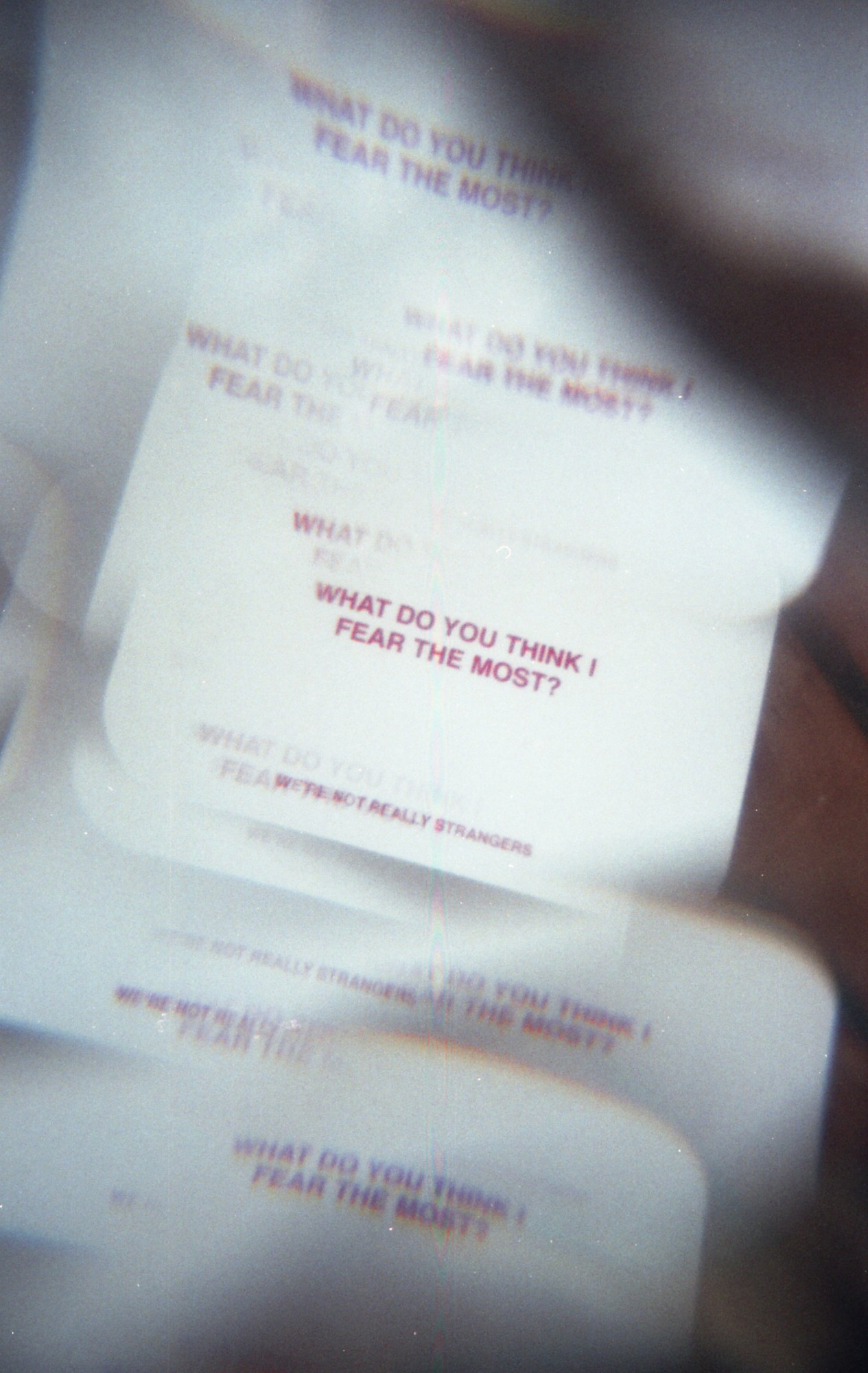
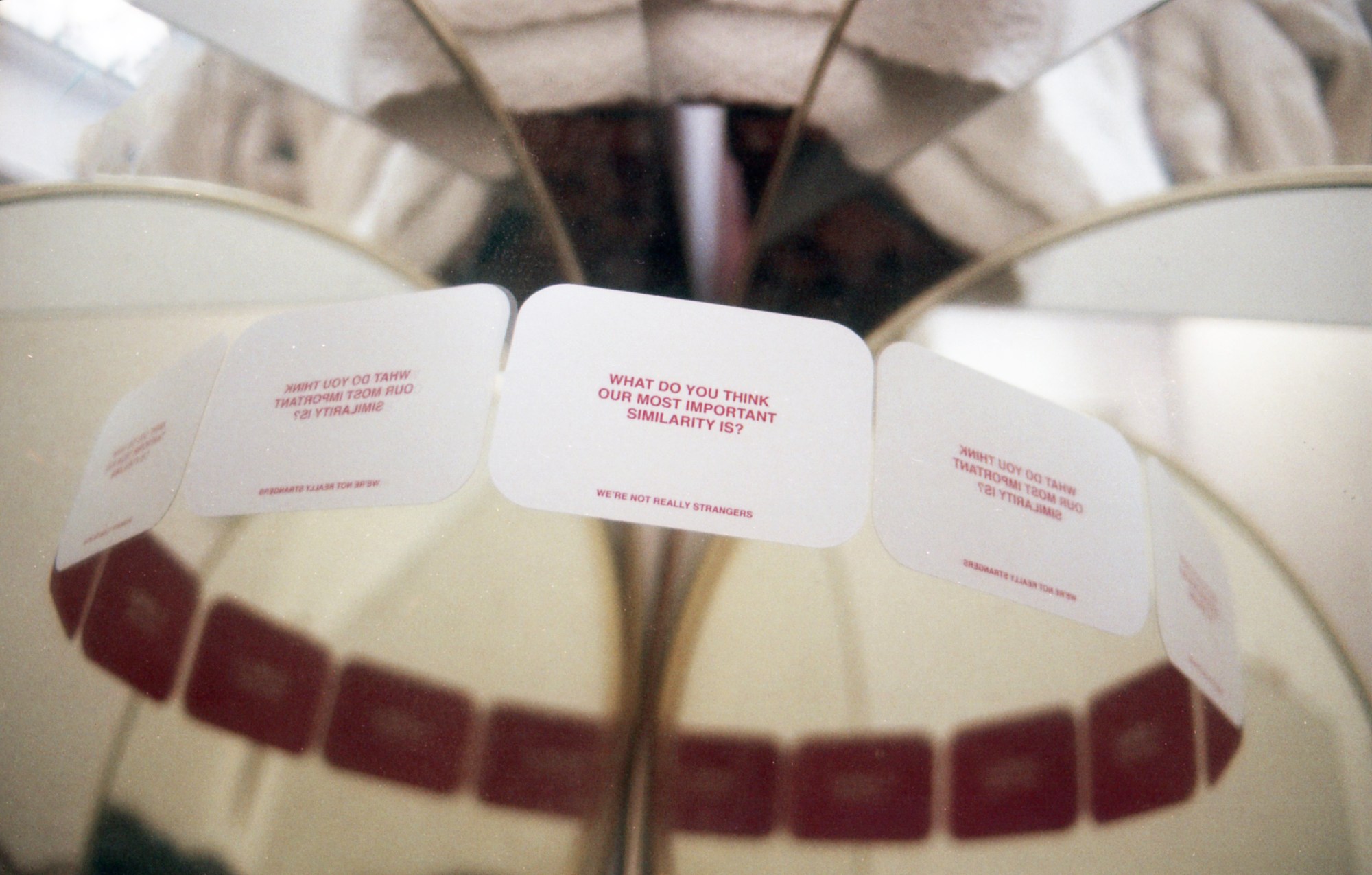
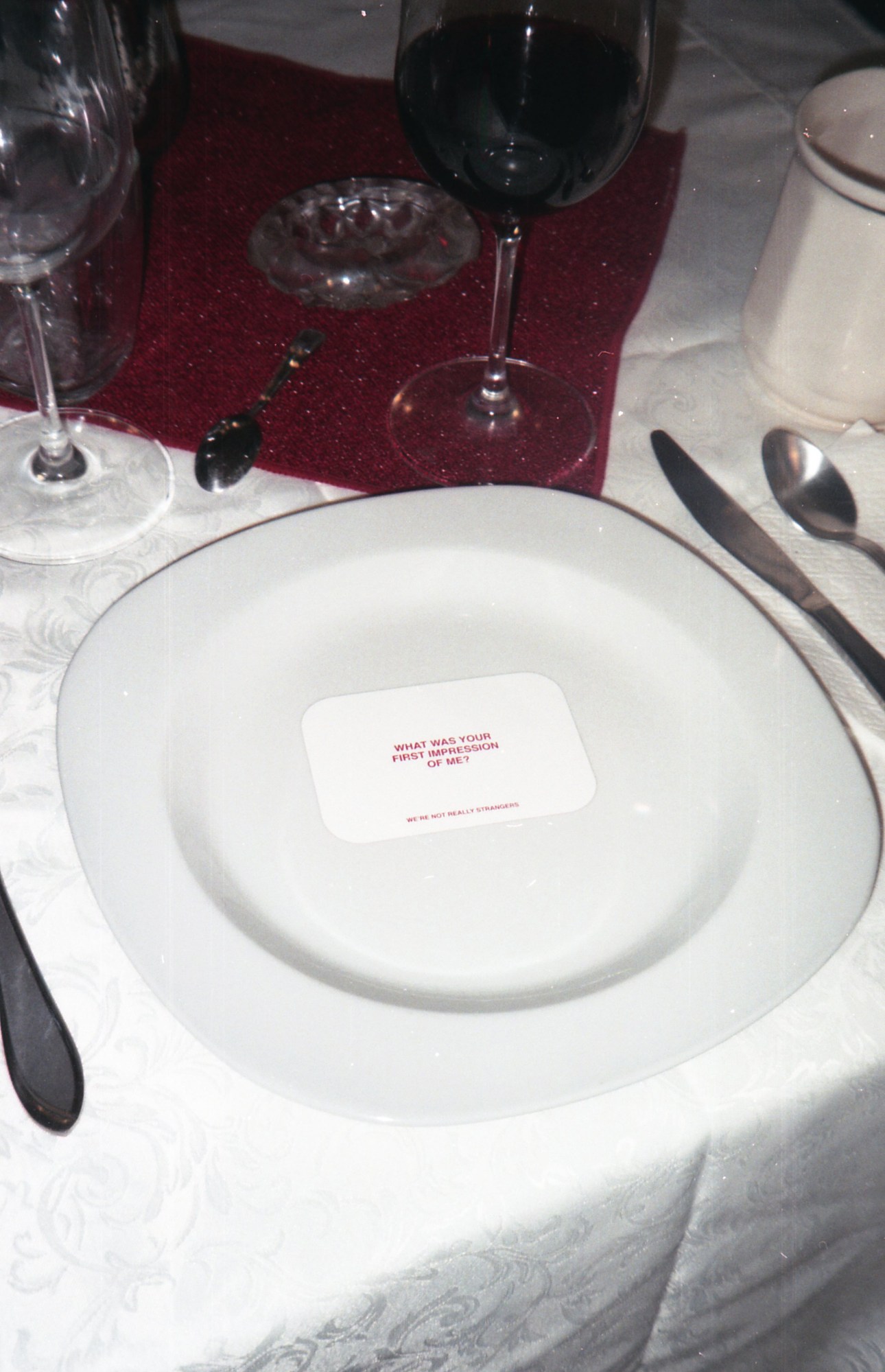
Credits
All imagery courtesy of Koreen Odiney
